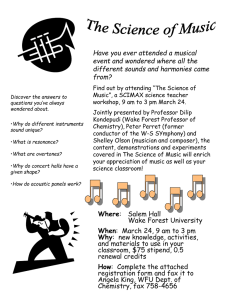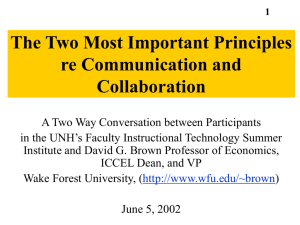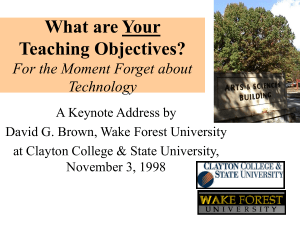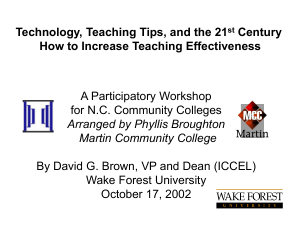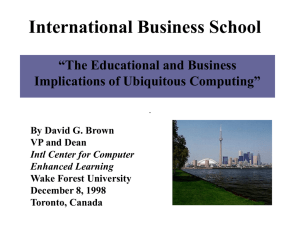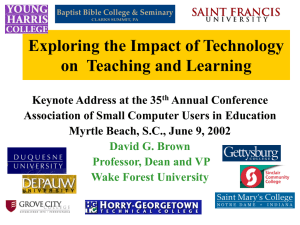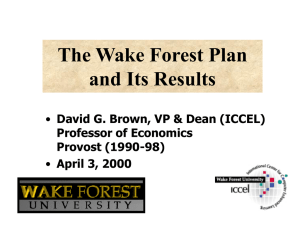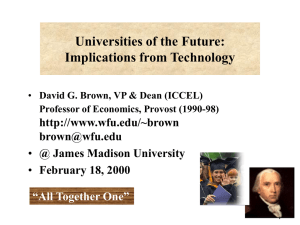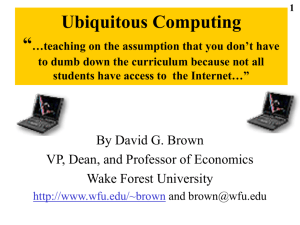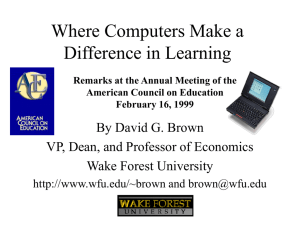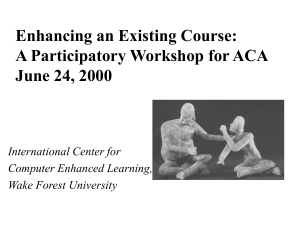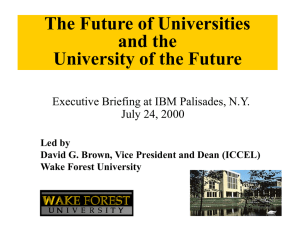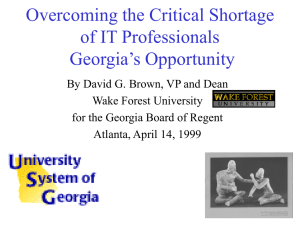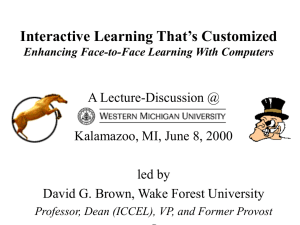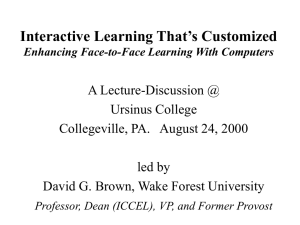When All Students Have Thinkpads
advertisement
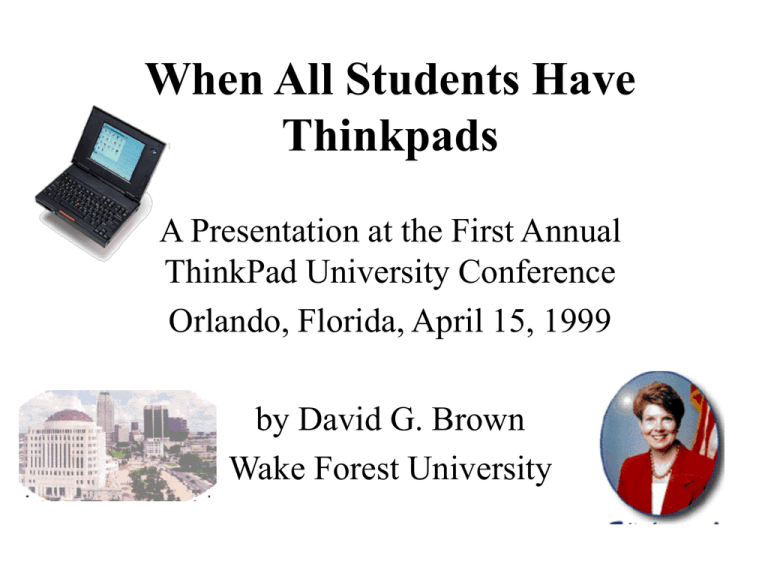
When All Students Have Thinkpads A Presentation at the First Annual ThinkPad University Conference Orlando, Florida, April 15, 1999 by David G. Brown Wake Forest University Outline of Remarks • Introduction • Update re Wake Forest • The Most Important Thing to Remember about Computers & Teaching+Learning • Your Lists of Lessons Learned • Update re ICCEL Why All Eyes Are On US • • • • • Top of the Line Computers Portability Significant Standardization Fullest Service Vendor Fund to Succeed New Computer & Load Undergraduates + MBA + Med School + Divinity School • • • • • • • • • Pentium II 333Mhz 6 GB hard drive 128 MB RAM 14.1 Active Matrix 4 MBPS InfraRed Port Lithium Ion Battery SVGA video out 56 KBPS Modem Ethernet, CD ROM • • • • • • • Windows 98 MS Office Prof 97 Netscape 4.5 Norton AntiVirus 5 Dreamweaver 2 SPSS 9.0 Maple 5.1 What’s New at ICCEL? • June 16-18 Conference for faculty re “How to Computer Enhance Your Teaching” http://iccel.wfu.edu • Electronically Enhanced Education: A Case Study of Wake Forest University ($10) • Always In Touch ($10) • Active Planning for Conference Schedule Next Year • Consultancies (often video) Recent Passion • Communication • Collaboration • Customization • Interactive • Interdependent • Individualized From the times of Craft Guilds & Small Towns we have “known” that --• • • • Most learning is collaborative Frequent feedback increases learning Loyalty-to-group motivates learning More time on task usually means more learning Beliefs of 91/93 Vignette Authors Pedagogy and Philosophy • • • • • • • From Interactive Learning Forthcoming June, 1999 From Anker Publishing David G. Brown, Editor Interactive Learning Learn by Doing Collaborative Learning Integration of Theory and Practice Communication Visualization Different Strokes for Different Folks Computers Enhance My Teaching and/or Learning Via-Presentations Better--20% Source = Wake Forest Students and Faculty More Opportunities to Practice & Analyze--35% More Access to Source Materials via Internet--43% More Communication with Faculty Colleagues, Classmates, and Between Faculty and Students--87% Computers allow people---• to belong to more communities • to be more actively engaged in each community • with more people • over more miles • for more months and years • TO BE MORE COLLABORATIVE YOU NAME LESSONS LEARNED ABOUT-- Marketing Assessment Teaching and Learning Administrative Computing Cost Savings Rules for Play • • • • Divide into Teams of Four Chair = Name That’s First in Alphabet Recorder = Name That’s Second Team Writes Down the BEST Two Lessons in EACH of the five categories • Each Team Posts Ideas on the Wall So We Can Vote Guidelines for Voting • Put Blue Dots on the Ten Most Important Lessons Listed (excluding your teams’) • Put Yellow Dots on the Three Greatest Ideas that are worth considering to take back home and apply. • Put Red Dots on all lessons learned that would not apply at your campus • THE TEAM WITH THE MOST BLUE + YELLOW DOTS WINS A REAL PRIZE Highest Vote Getters re Lessons 50+ PEOPLE FROM ABOUT 20 THINKPAD USING COLLEGES • Top Administration must experience the technology • Buy the computers coming off lease for resale at cost to the parents of incoming freshmen so they can communicate w their children • Reduce support/training costs by building better on line self help solutions • Market the whole program, not just the hardware • Integrate campus information systems to the laptop program to facilitate • Students need to be more utilized for t&l of faculty • Define measurable objectives THINK MASTER-APPRENTICE Spend $s on CCC + Don’t Wire Every Seat + Avoid Sinkholes David G. Brown Wake Forest University Winston-Salem, N.C. 27109 336-758-4878 email: brown@wfu.edu http//:www.wfu.edu/~brown fax: 336-758-4875
